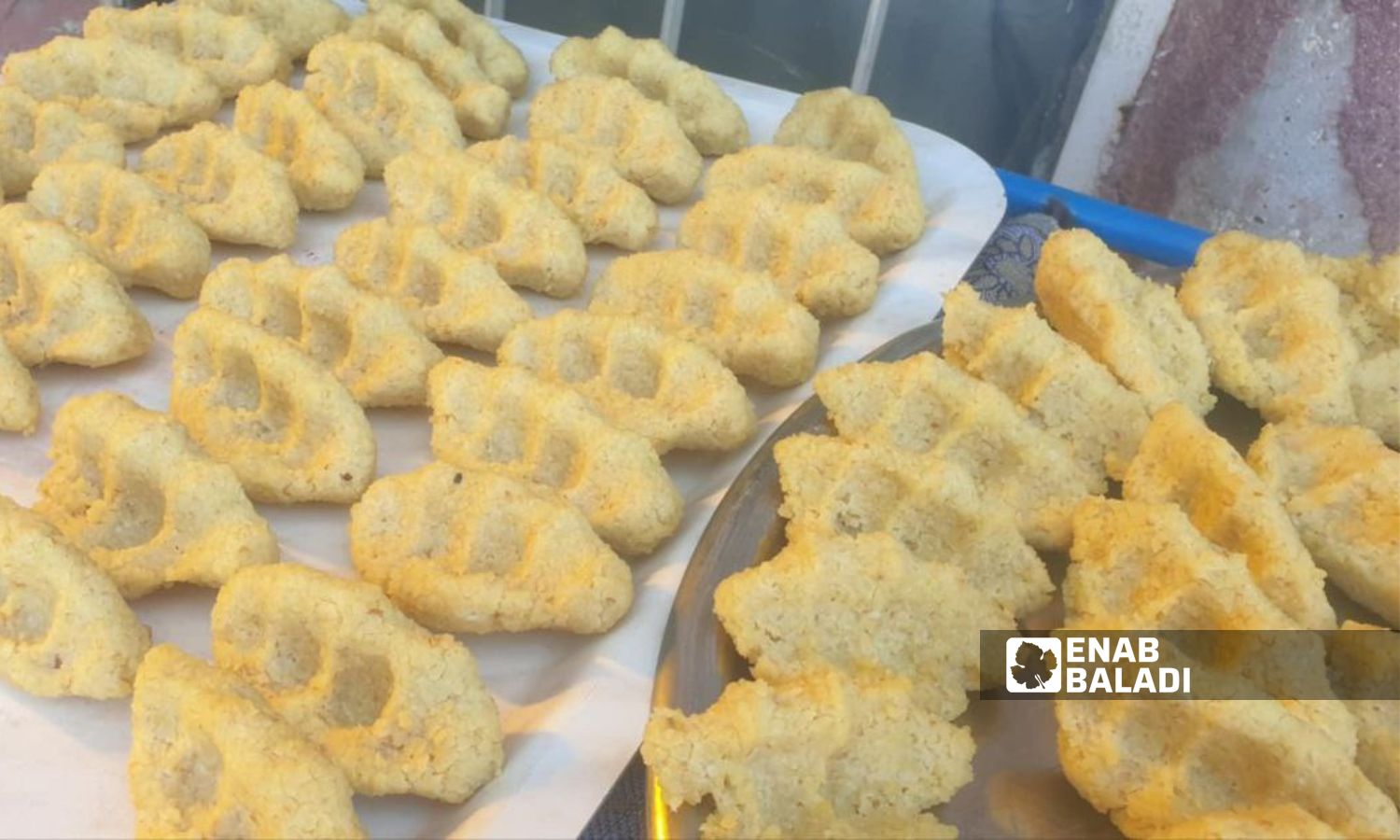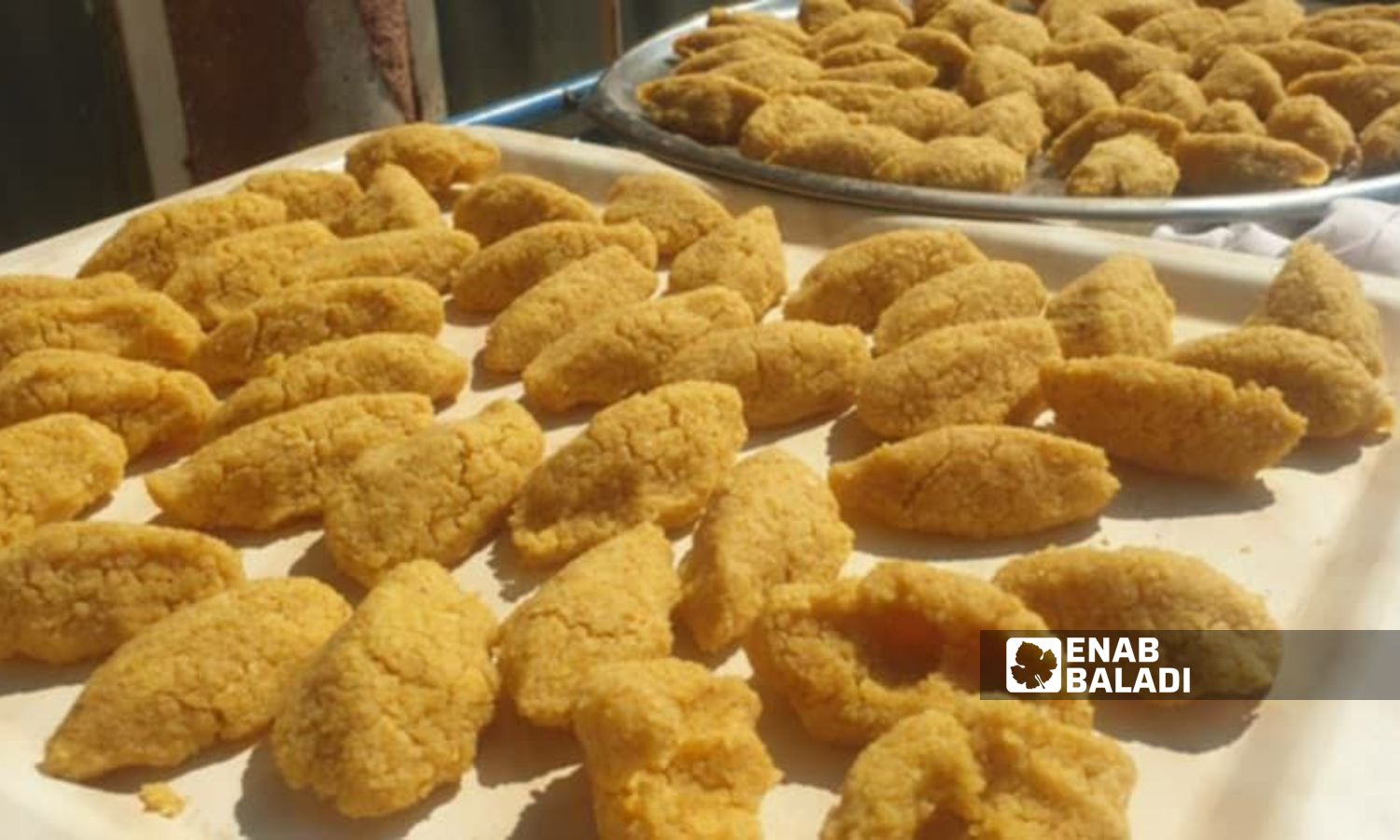



Sixty-something-year-old Janan spreads pieces of kishk over a clean cloth on the roof of her house in the Slanfeh area of Latakia’s countryside. She tirelessly arranges them every morning and removes them at the end of the day before evening falls, so they don’t get touched by dew, changing their color and extending the drying period.
Janan has never missed preparing this type of winter supply throughout her life, after learning about the dish through a friend at work when she was an employee in Damascus. The only change is in the quantities she makes, as the high cost of supplies has turned kishk into an expensive dish despite its simplicity.
Janan is one of the few women in Latakia governorate who prepare kishk or kishkeh, a dish not common in the governorate unlike other areas such as Hama, Homs, and As-Suwayda. This is perhaps due to Latakia’s mild nature because of its proximity to the sea, as kishk requires high temperatures to dry.
The preparation of kishk usually starts in July and August every year when temperatures are high. Nowadays, preparing winter food supplies has become a luxury amidst deteriorating economic and living conditions.
Janan prepared two kilograms of bulgur. Each kilogram needs 3 or 4 kilograms of yogurt and half a kilogram of labneh.
She mixes the ingredients and leaves them until the bulgur grains absorb the yogurt. Then, it is cut and exposed to the sun until it dries, after which it is stored for winter.
The cost of two kilograms of bulgur, yogurt, and labneh reached 100,000 Syrian pounds (7 US dollars) or slightly more, as Janan said, adding that she bought a kilogram of milk at 7,000 pounds per kilogram and made yogurt from it. If she had bought ready-made yogurt, the cost would have risen to about 130,000 pounds at the minimum.
The quantity was doubled in past years, but the rising prices of most materials, with her retirement salary not exceeding 250,000 pounds, reduced the quantities.

Preparing kishk starts in Latakia in July and August every year – August 2024 (Enab Baladi/Linda Ali)
In the past, Janan used to prepare kishk differently, adding pieces of meat with sheep fat when cooking it in winter, making it like a soup. Today, she cannot afford to buy a kilogram of mutton at 225,000 pounds and instead prepares it with Maggi cubes, onions, and olive oil.
For the sixty-something-year-old woman who lives alone, kishk is a good way to get some warmth in the cold winter of Slanfeh, a very cold area, especially when diesel fuel for the heater is not always available. She cannot do without making it, no matter how much it costs, as she said.
Janan also makes delicious kishk pies whenever she gets the chance. She likes to offer them to her neighbors along with a hot dish in winter. Although most of her neighbors hesitated to try kishk, they loved it; however, due to high prices and the cost of yogurt, they cannot prepare their own supply.
In addition to kishk, Janan makes other types of winter home-made supplies, such as makdous and fig jam. She works on her land, plants most of her needs, and sells the remainder to earn an income that helps her to some extent.
For Janan, following a healthy lifestyle of working on the land, exercising, and avoiding overeating is the secret to staying disease-free. She ensures she eats traditional dishes like kishk, wheat, and grains.
Most families in Latakia are abandoning the idea of winter supplies preparation as prices are high both during vegetable seasons and outside in winter. There is no significant difference, except for some rural residents who own agricultural lands where they grow some crops for storage without having to buy them.
Many people lost their provisions in 2020 and 2021 due to electricity rationing, prompting them to stop freezing provisions and seek new, albeit limited and inadequate, alternatives.
The deteriorating value of the Syrian pound against the US dollar deepens the suffering of Syrians, as the selling price of the dollar against the pound reached 15,000 pounds according to the S-P Today website specializing in exchange rates. Meanwhile, the minimum government salary in areas controlled by the Syrian regime is 279,000 Syrian pounds.
if you think the article contain wrong information or you have additional details Send Correction